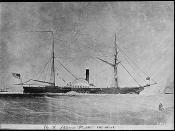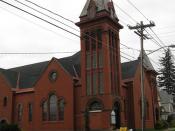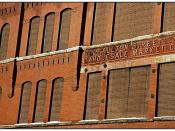In The Intuitionist, Colson Whitehead demands social uplift but does not give a means to achieving it. However, in rereading the text we notice hints of secular criticism which -in literary theory- serves as a means to social progress. Secular criticism in literature is not a method established to rebuke religion or religious beliefs. It is (as Edward Said puts it) ?a means to counter pose the divide between esoteric intellectual professionalism and prevailing societal pieties such as ethnocentrism and racism to disallow their prevalence.? (Said,219) Secular criticism is usually composed of structured commentary and analysis. However, in the Intuitionist it is composed of fiction. Fulton is an intellectual that first serves as an example of the divide between intellectual thought and society because his contributions to the study of elevators are considered to be purely theoretical and do not relate to any problems in society (In this novel the main societal problem is racism).
Later in the novel we discover that his purely theoretical study into elevators and the whole idea of intuitionism was a joke and that he was an African American. This newly discovered fact forges a connection between the intellectual and the societal aspects of his work in that we can now view his writing on elevators as an allusion to society. Furthermore, Lila Mae is capable of decrypting what the new elevation is only after rereading Fulton?s intellectual inquiry as it connects to the morbid reality that is racism. This leads to the notion that public intellectuals are needed to achieve social uplift. Whitehead?s bridging between Fulton?s intellectual scholarship and his social beliefs as a means to end racism can thus be characterized as secular criticism. Moreover, intellectual inquiry into societal problems rather than into abstract theory is how Man will achieve social uplift...


